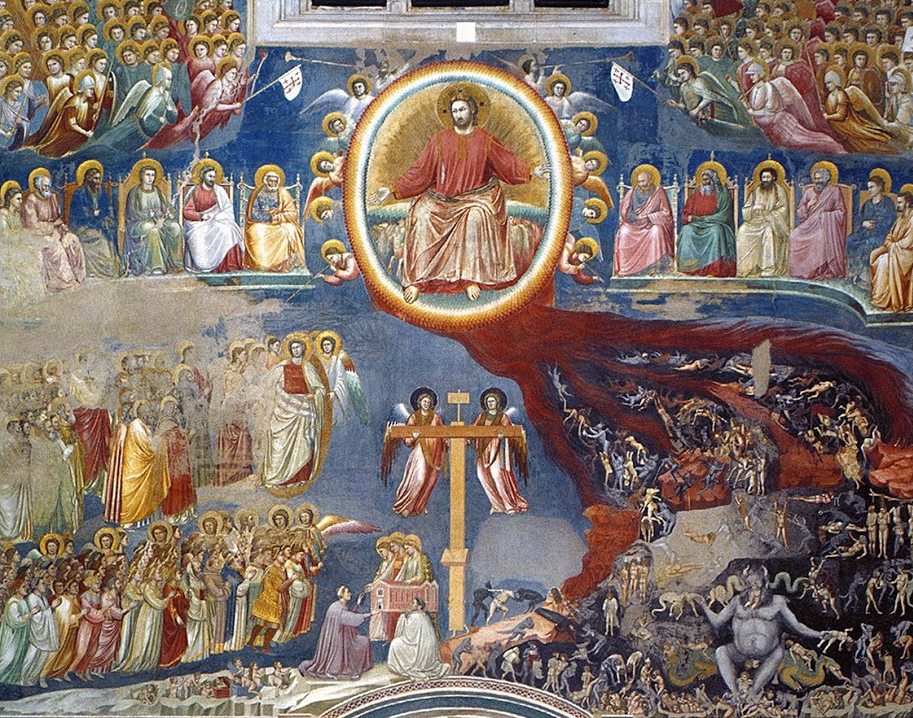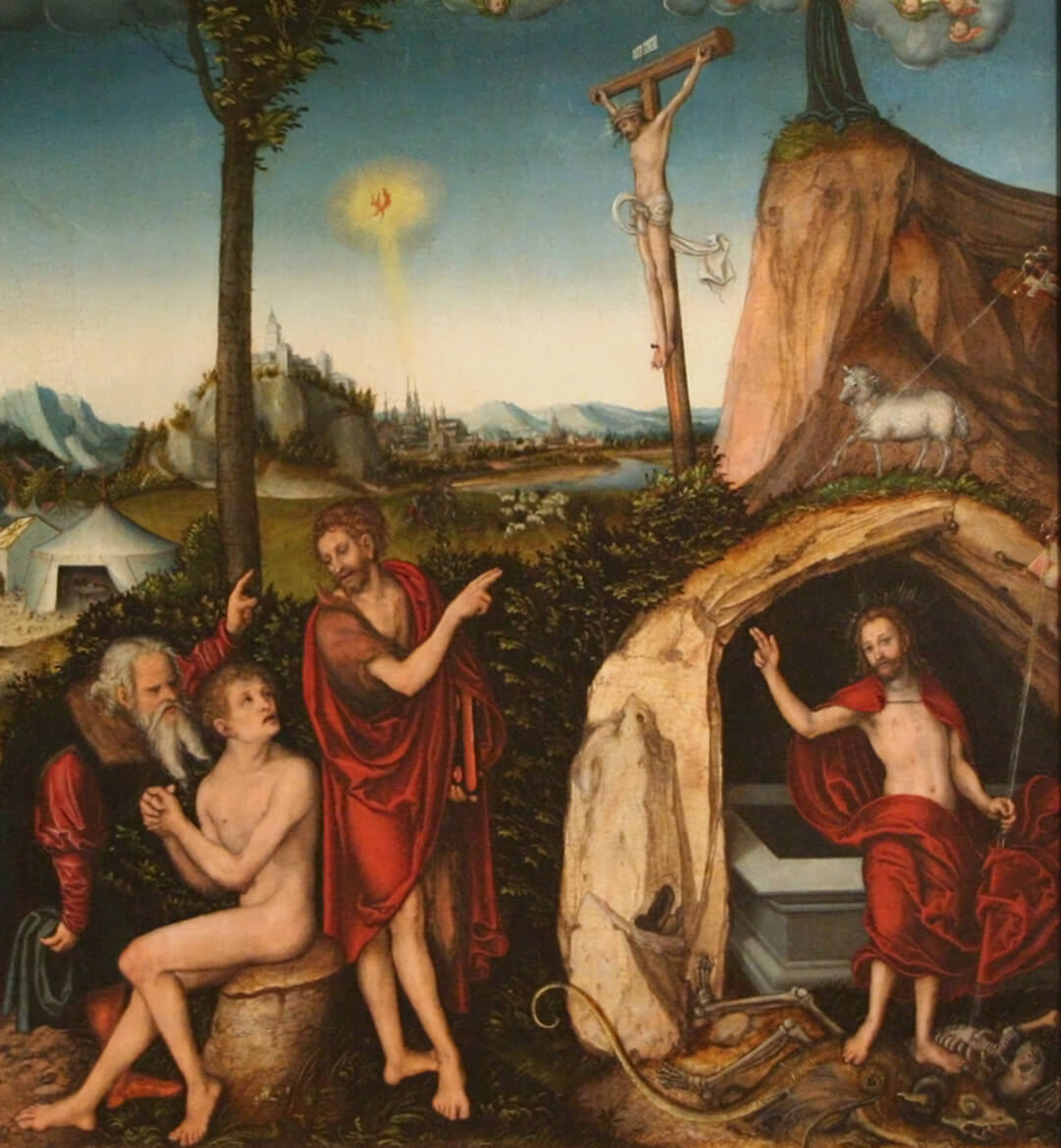Bethlehem Lutheran Church, Lebanon, OR
Thanksgiving Service – November 27, 2019
Texts: Deuteronomy 26:1-11; 2 Corinthians 9:6-15; Luke 12:13-21
In the Name + of Jesus. Amen.
It’s often easier to appreciate what you have when you know what it’s like to not have it. Those who lived during the depression know what real scarcity is, and appreciate the richness of life today. After World War II, commodities like rubber and steel were prized after they had been rationed. A full tank of gas meant a lot more during the Oil Crisis of 1973.
The point is sometimes it takes losing something before you appreciate how good you have it. It’s a rule that the following generations have a hard time fully appreciating the hardships and struggles which their parents had to get where they are.
The Israelites were commanded yearly to offer their firstfruits at the Temple, and part of the liturgy was saying,
A wandering Aramean was my father. And he went down into Egypt and sojourned there, few in number, and there he became a nation, great, mighty, and populous. 6 And the Egyptians treated us harshly and humiliated us and laid on us hard labor. 7 Then we cried to the Lord, the God of our fathers, and the Lord heard our voice and saw our affliction, our toil, and our oppression. 8 And the Lord brought us out of Egypt with a mighty hand and an outstretched arm, with great deeds of terror, with signs and wonders. 9 And he brought us into this place and gave us this land, a land flowing with milk and honey. 10 And behold, now I bring the first of the fruit of the ground, which you, O Lord, have given me.’
But for most of the people making that confession, they had no personal experience of this history. They might be able to imagine what it was like to be called out of Aram, dwelling as slaves in Egypt, hearing stories about crossing the Red Sea. Yet, that’s quite a different thing than walking in the sandals of your fathers.
The thanksgiving God is desiring here doesn’t come from the outside in, by mandate of the Law of Moses. That thanksgiving can be contrived, muttered under your breath as you’re forced to say grace with your family tomorrow.
Thanksgiving without faith may be glad that things are going well, that the pantry is full and health is good. But that’s as far as it can see. As soon as those things are taken away, so is any apparent reason to give thanks to God. This is the work of the sinful flesh. It works a selfish, short-sighted, and earthly outlook.
But a heart in which the Holy Spirit is at work sees God as faithful Father who provides and continues to provide even when times are lean and painful. The Spirit turns a believer’s heart outward not to be consumed with your own problems, but be willing to bear one another’s burdens and let God decide how He will provide for both of you. The Spirit works perseverance and resilience, because we know that this moment isn’t all there ever will be. It’s not in the present lack or abundance that God’s love is known, but in the everlasting promise He made and fulfilled when He gave His only Son to open eternal life to us.
That’s the basis of the Apostles’ words in 2 Corinthians 9:
6 The point is this: whoever sows sparingly will also reap sparingly, and whoever sows bountifully will also reap bountifully. 7 Each one must give as he has decided in his heart, not reluctantly or under compulsion, for God loves a cheerful giver. 8 And God is able to make all grace abound to you, so that having all sufficiency in all things at all times, you may abound in every good work.
The one who can only see the temporal stuff will sow sparingly because he can only see what his own hands produce. He’s limited, shackled, and without faith in the promises of a heavenly Father who gives daily bread.
Thanksgiving and giving go hand-in-hand because a heart that knows God by faith also knows how lavish He is in caring for the world. So one who is filled with thanksgiving also freely gives because he believes that God supplied and will continue to supply everything that is truly needed for this short pilgrimage on earth.
It comes up in Jesus’ ministry, this condition of the heart:
13 Someone in the crowd said to him, “Teacher, tell my brother to divide the inheritance with me.” 14 But he said to him, “Man, who made me a judge or arbitrator over you?” 15 And he said to them, “Take care, and be on your guard against all covetousness, for one’s life does not consist in the abundance of his possessions.”
The fleshly heart retorts, “How can you say that? Life is full of possessions and they’re very important. You must be a Pollyanna fool to whitewash the practical necessities with faith.” In fact what faith does is rise above those necessities and the urgency our hearts put on them. It’s no great feat to trust God when everything adds up and fits into the right boxes. It is a feat of faith to be a poor widow who has only two mites to live on and give those away for the service of the Temple (Mark 12:41-44). The stronger the faith, the less the power of insistence that things go my way. What do you put your trust in? Not in an intangible, fairy tale God, but in the Creator of Heaven and Earth, who is praised in Psalm 104:
27 These all look to you,
to give them their food in due season.
28 When you give it to them, they gather it up;
when you open your hand, they are filled with good things.
29 When you hide your face, they are dismayed;
when you take away their breath, they die
and return to their dust.
30 When you send forth your Spirit, they are created,
and you renew the face of the ground.
Today, just as much as any other, it is God’s will to fill us with faith and the thanksgiving which flows from knowing Him. May His Holy Spirit keep you from all covetousness and malice that you may celebrate these holidays in sincerity and truth.
In the Name of the Father, and of the Son, and of the Holy Spirit.






